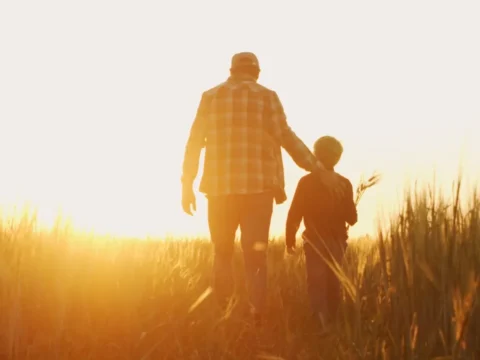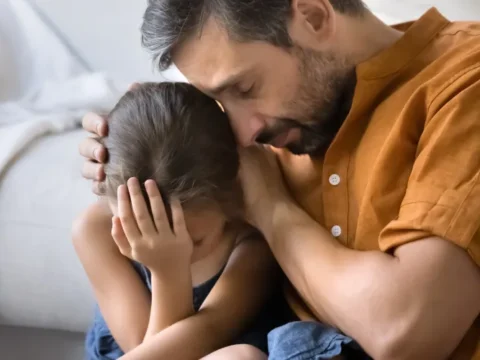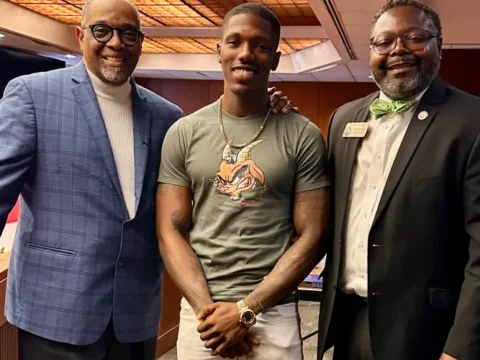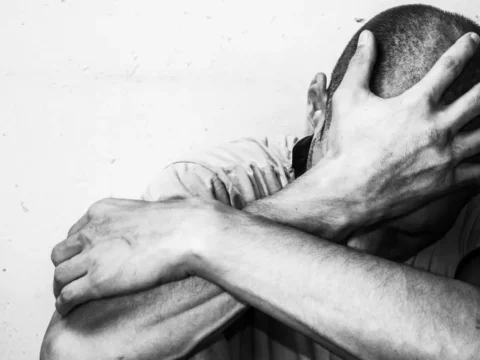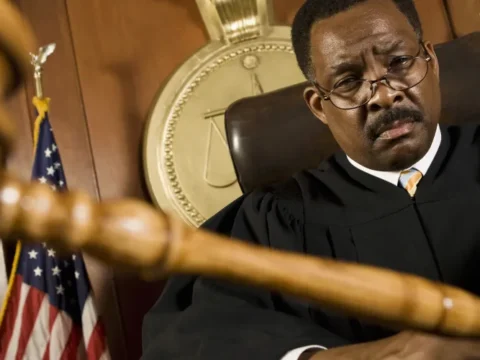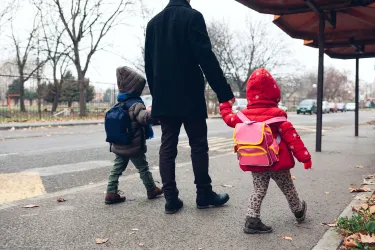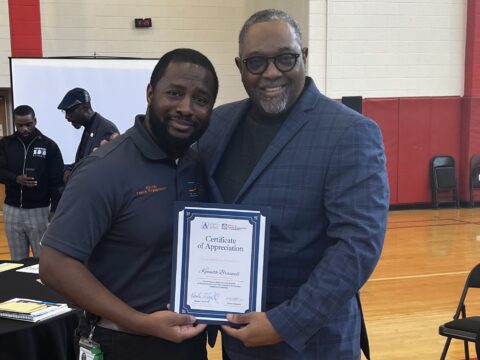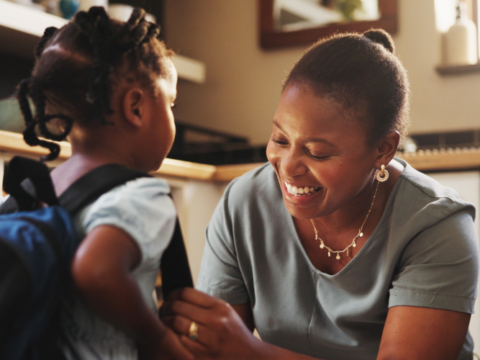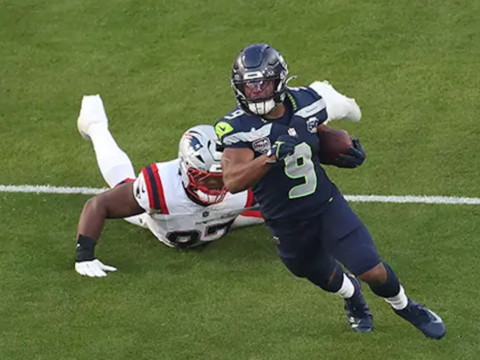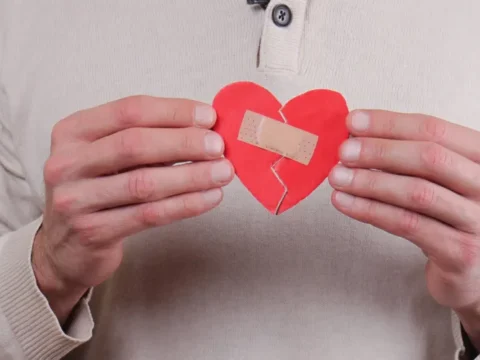By Kenneth Braswell, CEO, Fathers Incorporated
I spend a lot of time thinking about the complexity of co-parenting — not just as a practitioner or program developer, but as a man who has lived through its storms. In my role at Fathers Incorporated, I’ve built programs to strengthen fathers — to help them stand as providers, protectors, nurturers, and teachers. But every time I think about a father standing strong, I also think about the structure that surrounds him.
A single pillar, no matter how sturdy, cannot hold up a home. And that’s what co-parenting truly is: two (or more) pillars holding up the same roof — the life of their child — even when they stand apart.
The more I explore this idea through our Dad & Company curriculum, the more I see that healthy co-parenting is not just about cooperation but about understanding the concept of oneness.
Oneness doesn’t mean sameness. It means shared purpose, shared roots. It’s the acknowledgment that while the parents’ relationship may have changed, their responsibility to the sacred connection that exists through their child has not.
When I speak about co-parenting, I often return to a simple, living metaphor: the family tree. Picture it standing in a field, surrounded by soil and rain — everything it needs to grow. Its roots, unseen but essential, reach deep. When the weather is calm, it stands tall and full. But when a storm rolls in, when the winds howl and the lightning strikes, the true strength of that tree is tested.
I’ve seen families weather those storms. Some trees bend but remain rooted; others split down the middle. When that split happens — when a relationship breaks under a jolt of betrayal, disappointment, or heartbreak — something sacred fractures. One side of the tree may remain vibrant and green, while the other begins to wither. And yet, both sides still draw from the same soil. Both sides still belong to the same trunk.
I’ve seen this image play out too many times to count. One parent nurtures while the other retreats. One waters. The other neglects. The leaves still rustle in the same wind, but the shade they give no longer covers the same ground. The tragedy isn’t just that the relationship between the parents has changed — it’s that the child, who is no longer able to rest beneath the fullness of that tree.
That is the heartbreak of fractured co-parenting.
Children are meant to inherit the whole tree — the strength of both branches, the wisdom from both roots, the stories from both sides of the family. When conflict, bitterness, or pride keeps a child from knowing their father’s side — their cousins, grandparents, uncles, or the family history that shaped them — that child grows up missing half of who they are. It’s more than the absence of a person; it’s the absence of belonging.
And yet, even with that fracture, the roots still bind the tree. They hold an unspoken truth: The parents are forever connected. Not romantically. Not emotionally, necessarily. But spiritually, through the life of the child they share. Genesis 2:24 reminds us, “For this reason shall a man leave his father and mother and be joined to his wife, and they shall become one flesh.” And while that scripture speaks of marriage, the principle of oneness extends to parenthood. The birth of a child creates a bond that can never be fully separated, no matter how far the branches grow apart.
This is where the work becomes most challenging — and most sacred. To co-parent in oneness is to accept that your shared purpose must rise above your personal pain. It requires two people who may no longer see eye to eye to walk side by side when it comes to their child. That takes humility, discipline, and sometimes, divine intervention because logic alone cannot fix what the heart refuses to release.
I know this not as theory, but as testimony. I have stood in that space — the uneasy, in-between place where resentment replaces love. I’ve seen how the storm can make you forget that, beneath the surface, you’re still connected. That’s why I tell parents: You must learn to distinguish between the relationship and the responsibility. The romantic relationship may end, but the parental one must not.
The most difficult part of co-parenting isn’t the logistics — the calendars, child support, and holidays. It’s the healing. You cannot co-parent from unhealed hearts because the pain of the past will always leak into the present. The smallest disagreements become battles. The child becomes the messenger, the referee, the emotional sponge for adult wounds. That’s why healing your heart is not simply self-care — it’s child care.
When a relationship splits, it often feels like the tree will never be whole again, but even a tree split by lightning can live. The scar down the trunk doesn’t mean it’s dead; it means it’s survived. With care, sunlight, and time, the roots can still feed both sides. The leaves can still grow. The child can still thrive — but only if both parents remember their shared duty to nurture that life together.
That’s the essence of oneness in co-parenting. We don’t pretend the storm never happened. We tend to what’s left — the shared soil, the roots of your commitment, and the child who depends on you both. Even when you no longer live under the same roof, the child can still belong to one home: the home of love, security, and connection that you both build through presence and respect.
True co-parenting is not transactional; it’s transformational. It’s about creating peace even where the past created pain. It’s about learning that forgiveness is not for your ex — it’s for your child’s future. It’s the daily decision to communicate without ego, cooperate without control, and care without condition. When you do that, the storm loses its power. The child grows in balance, nourished by both sides of the tree.
Here’s the truth I want every father and mother to hear: Your child doesn’t care about who was right. They don’t measure your love by how much you win the argument but by how well you work together for their well-being. They remember the tone of your voice when you speak about their other parent. They remember if they felt safe enough to love you both without guilt.
The oneness of co-parenting asks us to evolve — to put aside the “me” and embrace the “we.” It’s an act of maturity, faith, and courage. It requires both parents to look beyond themselves and see the divine assignment they share. You are co-creators of a life. And that life deserves wholeness, not division.
When we, as parents, begin to see the family not as his side or her side, but as one side, we shift from fractured love to unified legacy. We give our children the chance to grow in soil that is rich, not toxic. And even when the storms come — because they will — those children will stand firm, rooted in love that does not waver.
So, when I talk about co-parenting, I’m talking about persistence. I’m talking about the willingness to keep nurturing both sides of the tree, even when one side is weary. I’m talking about remembering that your child’s stability depends on your ability to honor the oneness that still exists between you.
You may no longer be partners in romance, but you are partners in responsibility. You may no longer share a home, but you share a heartbeat — one that beats inside your child.
The oneness of co-parenting is sacred, and it’s difficult. But when you get it right, even imperfectly, your child will grow knowing that love — real love — does not break when relationships do. It bends. It learns. It endures. They learn that love, like the roots of a tree, runs deeper than the storm.


